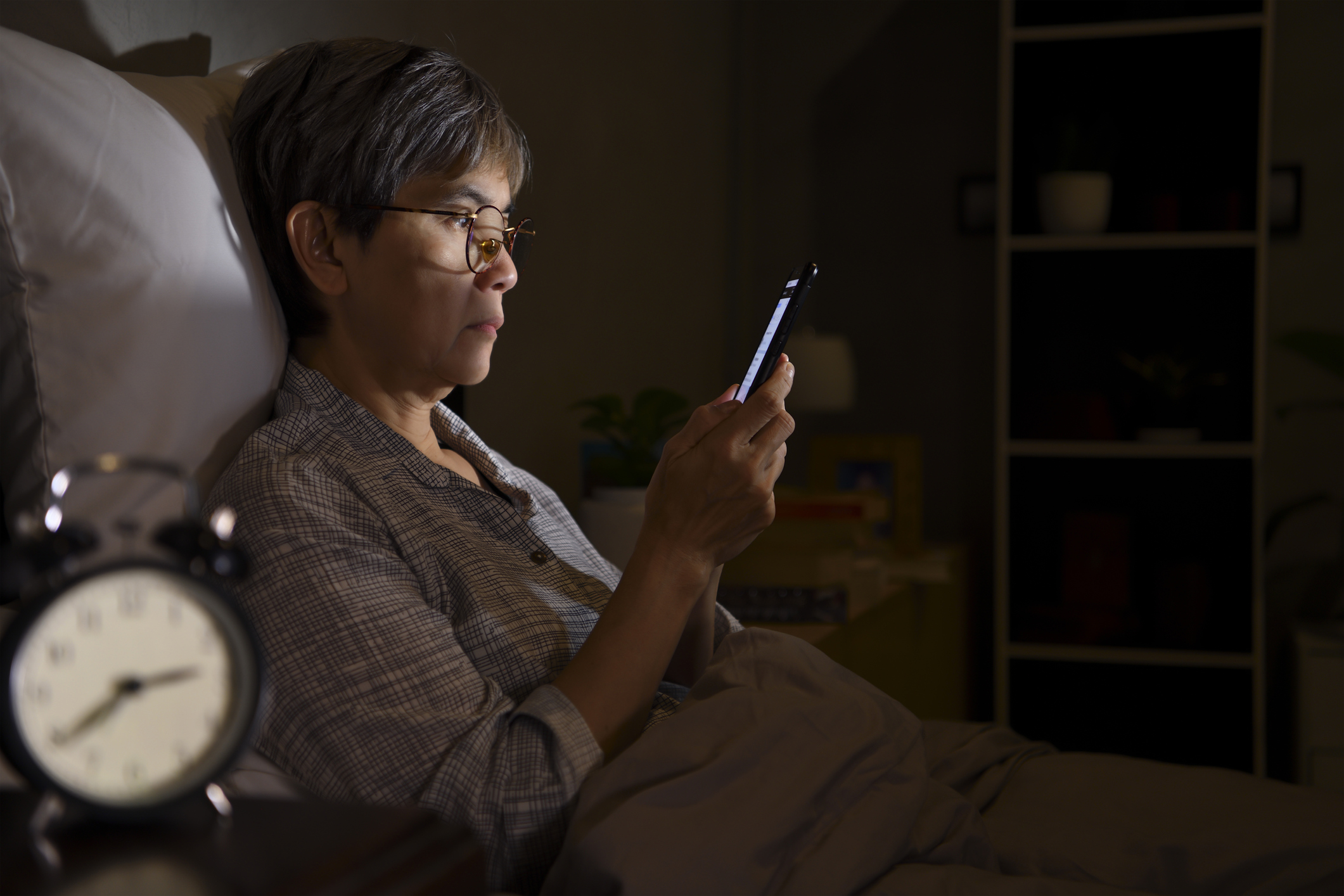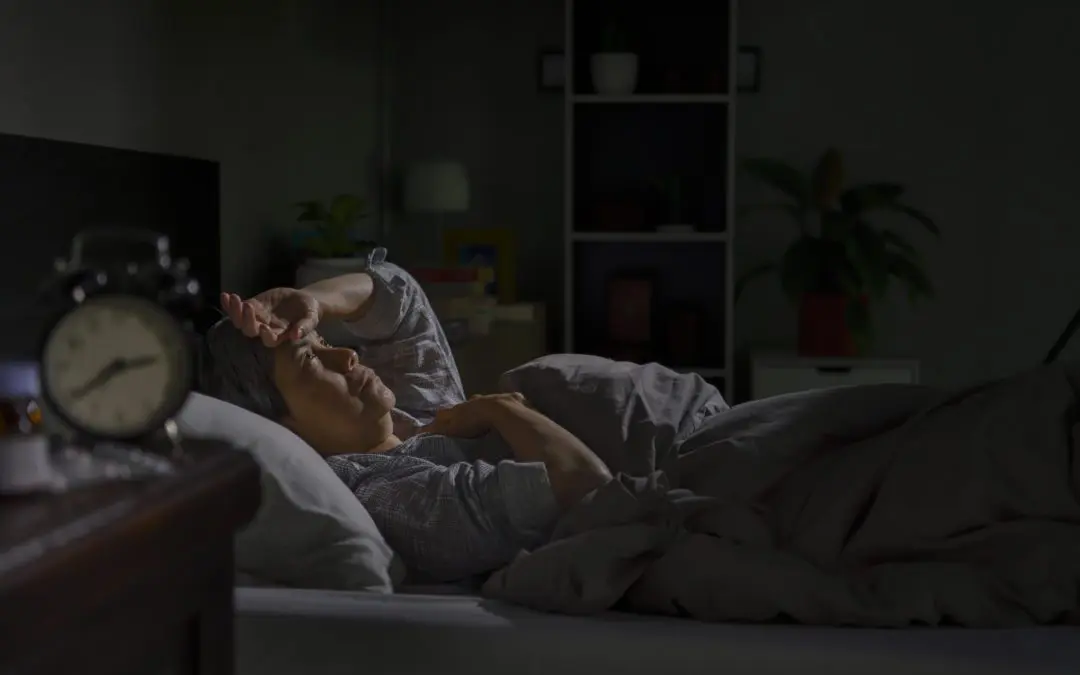Insomnia is common in people of all ages, but it can be especially difficult for seniors to manage. As we age, our sleep patterns and requirements change significantly. In addition to the physical and mental health changes that come with aging, lifestyle factors make it hard for seniors to get sufficient restorative sleep.
This blog post will explore the link between insomnia and aging. We’ll examine why seniors are more prone to difficulty sleeping, what lifestyle changes they can make to help improve their sleep quality, and how medical interventions can help when lifestyle modifications don’t provide enough relief.
Contents
Why Are Seniors Prone To Difficulty Sleeping?
When it comes to insomnia, many factors can contribute to difficulty sleeping. Aging is one of the biggest contributors, and this is due to a variety of causes, including:
Changes in Circadian Rhythms
Circadian rhythms regulate our bodies’ natural cycles throughout the day and night. Our circadian rhythm changes as we age, presenting challenges for our sleep-wake cycle. These changes can include difficulty falling asleep, waking up early in the morning, and feeling wide awake at night.
Changes in Hormones
Aging is associated with a shift in hormone production, which can directly impact sleep quality. For example, melatonin levels naturally decline as we age, making it harder to fall asleep. In addition, levels of sex hormones such as estrogen and testosterone also decline, which can lead to insomnia symptoms.
Medications
Many medications used to treat chronic health conditions in seniors have side effects that can disrupt sleep patterns. These drugs include blood pressure medications, antidepressants, and even some over-the-counter medications.
Overall Poor Health
As we age, we become more vulnerable to chronic health issues such as arthritis, heart disease, and diabetes, which can all contribute to insomnia. Additionally, changes in sleep quality are common among seniors who suffer from depression or anxiety.

Lifestyle Changes To Help Improve Sleep Quality
Fortunately, there are some lifestyle changes that seniors can make to help improve their sleep quality:
Practice Good Sleep Hygiene
One of the most important things a senior can do to improve their sleep quality is to practice good sleep hygiene. This includes avoiding caffeine, alcohol, and nicotine close to bedtime, developing a regular exercise routine, and maintaining a consistent sleep schedule by going to bed and waking up at the same time each day.
Create A Relaxing Bedtime Routine
It’s also essential for seniors to create a relaxing bedtime routine that helps them wind down and prepare for sleep. This could include taking a warm bath, reading a book, or listening to calming music.
Avoid Naps
Napping can often interfere with nighttime sleep, so seniors should limit the length of their naps and only take them in the early afternoon. This way, their bodies will be more prepared to fall asleep at night.
Medical Interventions
In some cases, lifestyle modifications may not provide enough relief for seniors struggling with insomnia. In these cases, medical interventions such as cognitive behavioral therapy (CBT) or medication can help improve sleep quality and reduce symptoms of insomnia.
It’s important for seniors who are having difficulty sleeping to consult a doctor and discuss their options. With the right medical treatment, seniors can find relief from insomnia and improve their overall sleep quality.
What Are the Negative Effects of Insomnia for Seniors?
As we’ve discussed, insomnia can be especially difficult for seniors. Not only can it lead to difficulty sleeping, but it also affects their overall health and well-being. The lack of sufficient restorative sleep associated with insomnia can harm seniors’ mood, energy levels, and cognitive functioning.
It can also increase the risk of falls and injury due to impaired coordination and decreased reaction times. Additionally, it can increase the risk of cardiovascular disease and other chronic health conditions.
Therefore, seniors must take the necessary steps to improve their sleep quality and reduce insomnia symptoms.
Conclusion
Insomnia can be a difficult issue for seniors to manage, but there are treatments and lifestyle changes that can help. By understanding the link between insomnia and aging, seniors can make informed decisions about how best to address their sleep issues and find relief. With the right interventions, seniors can improve their sleep quality and reduce the negative effects of insomnia on their overall health and well-being.

